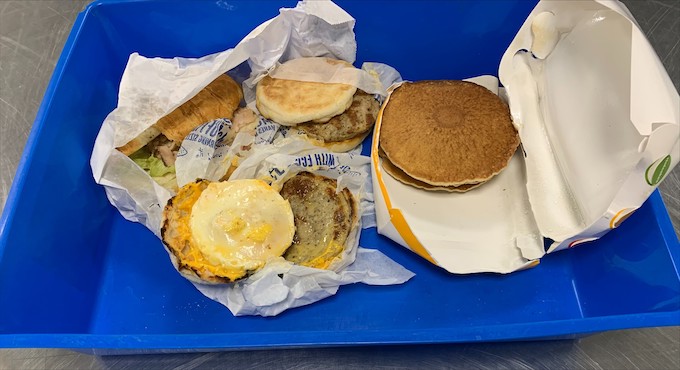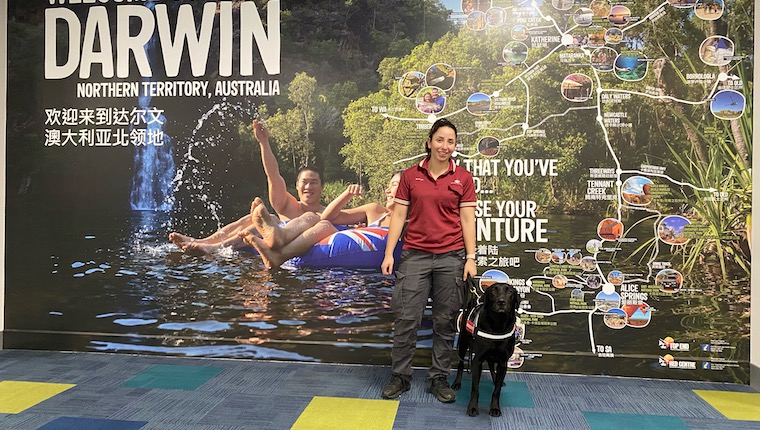Zinta takes her job in biosecurity defenses very seriously.
Recently employed due to the uptick in cases of foot and mouth disease (FMD), the black Labrador mix uses her nose to detect food items in travelers’ luggage at Australia’s Darwin International Airport. Today, she found something good — two egg and beef sausage McMuffins and a ham croissant.

Zinta represents just one of many dogs employed by humans to find what is otherwise untraceable at the surface level. As recent studies show, dogs’ tracking abilities go beyond finding food.
The Most Expensive McDonald’s Breakfast
After Zinta located the hidden food, the Department of Agriculture, Fisheries, and Forestry hit the offending traveler with a $1,874 “infringement notice.”
“This will be the most expensive Maccas meal this passenger has ever had,” said Murray Watt, the Minister for the department. Watt is tasked with keeping the country free of FMD, which has been on the rise in Indonesia, specifically Bali.
Unfortunately for them, this particular passenger carrying the McDonald’s breakfast was arriving from Bali, which explains the hefty fine. Thanks to dogs like Zinta, Australia remains FMD free.
Dogs as Detectors
Given that dogs are capable of detecting much more than McDonald’s breakfast, Zinta isn’t the only pup with an important job to do. In light of recent studies, we know that dogs are able to detect certain diseases, poisons, and even COVID-19. With more studies underway, man’s best friend could soon become our greatest tool for saving lives.









